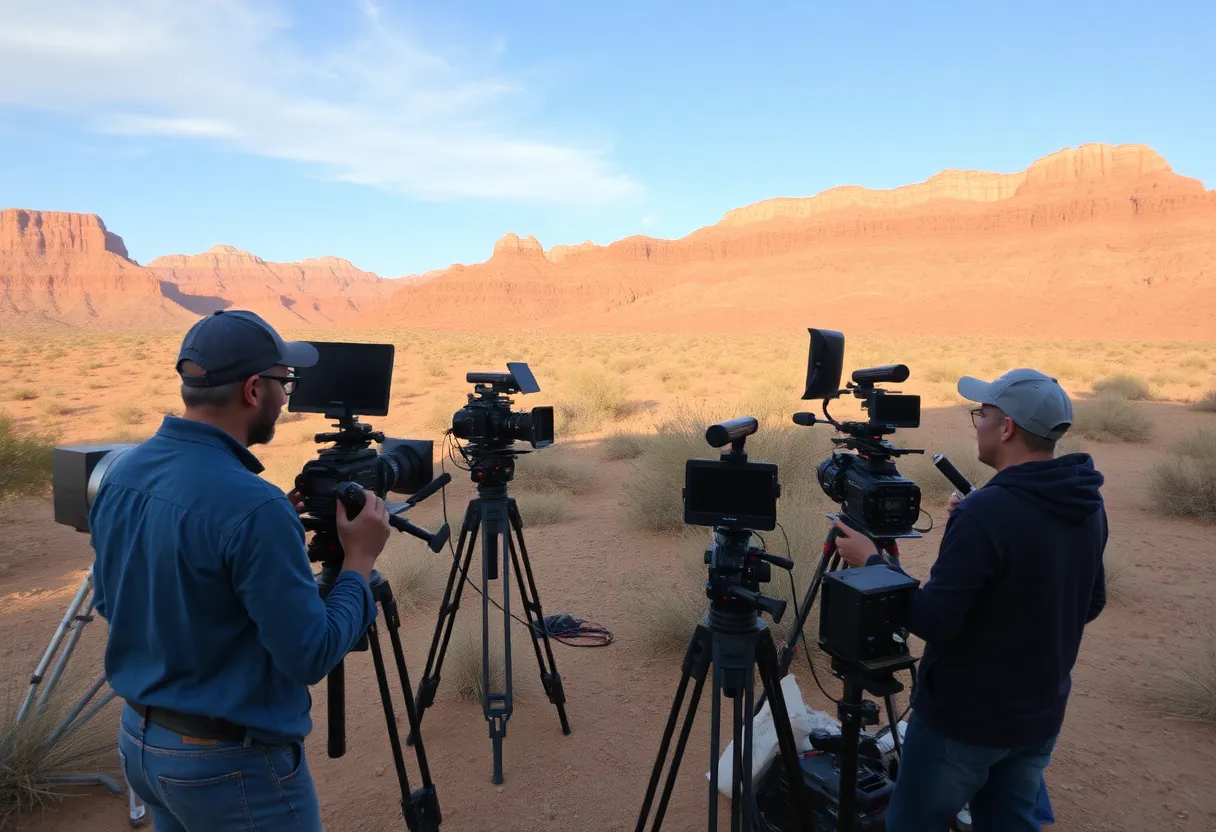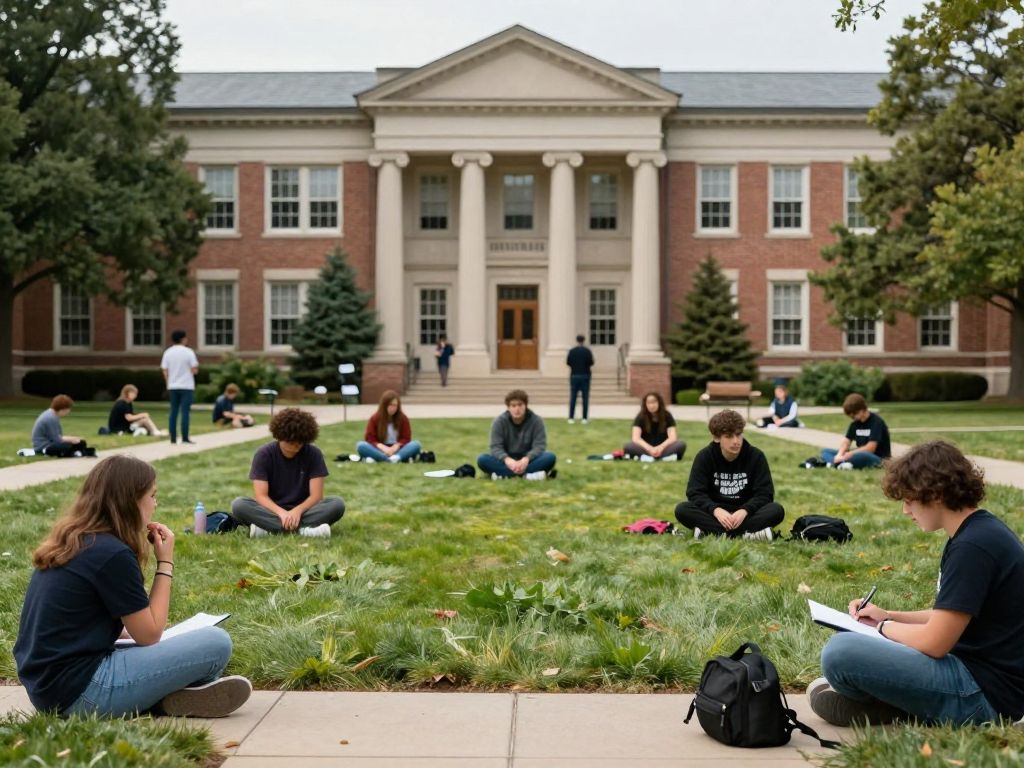News Summary
Arizona’s Motion Picture Production Program faces a legal battle led by the Goldwater Institute, challenging the constitutionality of film tax incentives. The lawsuit claims these incentives violate the state’s ‘gift clause’ and could significantly impact the film industry and similar programs in the state. While proponents argue these incentives are essential for economic growth, opponents highlight past failures of similar programs. The outcome of this dispute may set a precedent for future economic incentives across various sectors in Arizona.
Arizona is facing a legal challenge that could disrupt its Motion Picture Production Program, an initiative designed to attract filmmakers and revive the state’s film industry. The Goldwater Institute, a conservative think tank, has filed a preliminary injunction aiming to stop the state from making payments related to filmmaker incentives.
The lawsuit asserts that the tax incentives provided by the program violate the Arizona Constitution’s “gift clause,” which prohibits the state from giving public funds as gifts to individuals or private enterprises. This legal move raises significant concerns about the future of similar tax programs in Arizona.
The Arizona Motion Picture Production Program offers tax credits amounting up to $125 million annually to encourage filmmakers to bring their projects to the state. This initiative is part of a broader effort to rejuvenate Arizona’s film landscape, which has struggled with previous incentive programs that have not produced the expected economic benefits.
Arguments Against the Program
Parker Jackson, a staff attorney for the Goldwater Institute, has voiced strong opposition to the incentives, claiming they do not deliver tangible benefits to taxpayers. Citing a prior film incentive program operational between 2005 and 2010, Jackson highlights that it resulted in substantial financial losses for the state, with many of the projects failing to generate adequate returns. Reports indicated that $8.6 million in credits led to only $2.3 million in tax revenue, raising doubt about the overall effectiveness of such initiatives.
The current program has already approved at least six films that have finished production and are set to receive a collective $901,815 in credits. Jackson’s lawsuit targets the refundable nature of these tax credits, arguing they operate more as subsidies rather than benefits that directly serve taxpayers.
Support for Film Tax Incentives
Despite the legal challenge, proponents of the film tax incentives, including Arizona Senate President Warren Petersen, argue that the incentives are crucial for revitalizing the local film industry and boosting the economy. Petersen has emphasized that while the legislature is entitled to create tax policies, these measures must adhere to constitutional guidelines to avoid potential violations of public fund distribution.
Senator David Gowan has also defended the program, asserting that the incentives have the potential to stimulate economic growth and create new employment opportunities within the film sector. He warns that a ruling in favor of the Goldwater Institute could jeopardize tax credits across various industries in Arizona, not just filmmaking.
Legal and Economic Implications
The Arizona Commerce Authority has joined the fray by filing a motion to dismiss the Goldwater Institute’s lawsuit, claiming that the plaintiffs lack sufficient standing. As the legal dispute unfolds, the outcomes may have broader implications for the state’s ability to incentivize a range of industries, far beyond just film.
Historically, Arizona’s struggles with film tax incentives are evident, as the previous program was repealed in 2015 due to concerns over its financial burden on the state. The current program has instituted rigorous requirements, demanding that participants show evidence of actual spending within the state through a comprehensive audit before being eligible for the incentives.
Some local businesses, such as Cinevo, which specializes in equipment rentals, are hopeful about the resurgence of film production in Arizona. They anticipate an increase in demand as the state becomes a more attractive location for filming once again, boosting the local economy.
Conclusion
The legal challenges to Arizona’s film tax incentives highlight ongoing debates surrounding fiscal responsibility and government spending. The outcome of these proceedings could not only determine the future of the film industry in Arizona but also set important precedents for the state’s approach to economic incentives across various sectors.
Deeper Dive: News & Info About This Topic
- AZ Family: Lawsuit Challenges Arizona’s Tax Breaks for Film and TV Production
- ABC15: Arizona Commerce Authority Seeks Dismissal of Film Incentives Lawsuit
- MovieMaker: Cinevo and Arizona’s Tax Incentives
- Phoenix Magazine: Media News on FilmAzona
- Mohave Daily News: Arizona Lawmaker Takes Aim at 2022 Tax Incentives
- Wikipedia: Film Tax Incentives in the United States

Author: STAFF HERE PHOENIX WRITER
The PHOENIX STAFF WRITER represents the experienced team at HEREPhoenix.com, your go-to source for actionable local news and information in Phoenix, Maricopa County, and beyond. Specializing in "news you can use," we cover essential topics like product reviews for personal and business needs, local business directories, politics, real estate trends, neighborhood insights, and state news affecting the area—with deep expertise drawn from years of dedicated reporting and strong community input, including local press releases and business updates. We deliver top reporting on high-value events such as the Waste Management Phoenix Open, Cactus League Spring Training, and Arizona State Fair. Our coverage extends to key organizations like the Greater Phoenix Chamber of Commerce and Visit Phoenix, plus leading businesses in technology and healthcare that power the local economy such as Intel and Banner Health. As part of the broader HERE network, including HERETucson.com, we provide comprehensive, credible insights into Arizona's dynamic landscape.





